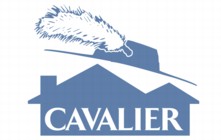Did you know that Virginia is one of the few caveat emptor (buyer beware) states in the country? Most buyers coming outside of the state expect to see a long list of disclosure items from the seller. For example: Dishwasher works, stove works, there is an easement across the property and so forth. In Virginia, the seller has to tell you very little about the property. When you make an offer on a property, you will be given a Summary of Rights and a Residential Disclosure form to sign. You would be wise to read these documents and ask some questions about the property.
Here are some of the items that the seller does not need to disclose. This list comes from the link off of the Residential Disclosure Form.
- The Seller makes no representations or warranties about the property, the improvements and if there are any covenants and restrictions.
- The Seller makes no representations pertaining to the adjacent parcels. That beautiful field across the street could become the next high-density development or the county dump and the Seller does not have to tell you.
- The Seller makes no representation as to whether the property is in a historic district and if you need to go before a board for approval prior to making any changes to the home or property.
- The Seller makes no representations as to if the property is in a resource protection area.
- The Seller makes no representation if there are any registered sexual offenders in the area.
- The Seller makes no representation as to whether the property is within a dam break inundation zone.
- The Seller makes no representation as to if there are any stormwater detention facilities n the property or if there are if there are any maintenance agreements on it.
- The Seller makes no representations about the wastewater system and if there are any regulations pertaining to it.
- The Seller makes no representation as to whether you can place solar panels on your home or property.
- The Seller makes no representation that the property is in a flood zone and if flood insurance is required.
- The Seller makes no representation that the property is or is not under a conservation easement or any other type of easement.
- The Seller makes no representation as to whether the property is subject to a community development authority.
Most Sellers and their agents will do the proper thing and make you aware of potential problems. If the Seller’s agent is aware of a problem and it lies within the property boundaries, then the agent must disclose the problem.
So, what does the Seller have to tell you?
- If there have been any mining operations on the property.
- If the property is located in a locality with a military installation.
- If the home has defective drywall.
- If the home has pending building code or zoning ordinance violations.
- If the property has been used to manufacture meth. Yes, like a Seller is going to really tell his agent this. Nevertheless, it is the law!
- If the property septic system has an operating permit that cannot be transferred.
So, what is a buyer to do???? Do some research at the courthouse to find out about covenants and restrictions, easements, historic districts and adjacent parcels. Talk to your insurance agent about insuring the property. Get the well and septic permits, if they exist, from the county health department. Look at the county website for zoning permits and zoning districts. Look at the FEMA website for flood zones.
It never hurts to ask lots of questions and to do your due diligence!


 Virginia is a caveat emptor (buyer beware) state, so we encourage all of our buyers to do their due diligence as a contingency in their purchase contract. One of the most common inspections is the home inspection. We thought it would be of interest to run a series on the various home inspectors in the area, so that when the time comes, you will easily be able to select the inspector that meets your needs and you feel the most comfortable with. This quarter we are introducing Jim Quisenberry of
Virginia is a caveat emptor (buyer beware) state, so we encourage all of our buyers to do their due diligence as a contingency in their purchase contract. One of the most common inspections is the home inspection. We thought it would be of interest to run a series on the various home inspectors in the area, so that when the time comes, you will easily be able to select the inspector that meets your needs and you feel the most comfortable with. This quarter we are introducing Jim Quisenberry of